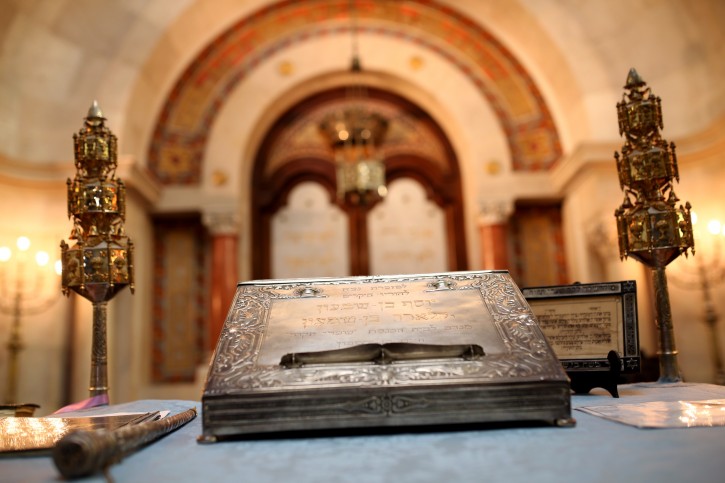When it comes to world history, most people are somewhat familiar with the Spanish Inquisition. But did you know that the Portuguese Inquisition was an equally brutal time in European history? This bloody period in Portugal’s history was one that particularly targeted the country’s Jews — a fact for which the country has been showing atonement over the last few decades.
Before the Inquisition
Let’s step back in time — all the way back to a period when Jews were a successful, and in some ways, favored group in the country of Portugal. During the 13th and 14th centuries, Jews made huge contributions to Portugal’s success in world exploration. During this period, known as the Golden Age of Discovery, over 200,000 Jews lived in Portugal, representing around 20% of the country’s population. While they maintained separate quarters, they had freedom of movement and maintained everything from synagogues to hospitals within their communes.
Over time, Jews became some of Portugal’s most wealthy and intellectually elite citizens, largely due to their involvement in medicine, cartography, mathematics, and finance — fields that served world exploration well. Jews played such a pivotal role during this period in Portugal’s history that they were given preferential treatment by its kings.
As is common in Jewish history throughout the world, there were periods of mistrust and mistreatment. By the late 15th century, King Joao had threatened many of the rights of Portugal’s Jews. These years served as a foreshadowing of a greater persecution to come.
The Portuguese Inquisition
Let’s move forward in time to a period about 40 years before the Portuguese Inquisition began. King Manuel I of Portugal ascended the throne. One of his first acts was to restore Jewish freedoms. However, when he later wished to marry Princess Isabella of Spain, her parents would only agree to the marriage if Portugal would deport its Jewish population. When Manuel agreed to these terms, tens of thousands of Jews prepared to flee Portugal.
But Manuel struck a deal that would allow him to technically fulfill the terms of his agreement with Spain’s royalty, while maintaining the immense cartographical and technological talent that Portuguese Jews provided for world exploration. Manuel declared that Jews would be allowed to stay in the country if they converted to Christianity. Jewish citizens were threatened or forcibly baptized in many cases, before they became “new Christians.” In many cases, they publically support Catholicism, but privately maintained their Jewish faith and culture. These hidden, crypto-Jews were known as Marranos.
In 1536, the Inquisition was formally established in Portugal by King Joao III. The Portuguese Inquisition’s major targets were those who had converted from Judaism to Catholicism, as they were suspected of secretly practicing their original faith. During the Inquisition, an estimated 40,000 Marranos and Jews were tortured, then burned at the stake. Public executions continued under the Inquisition for over 200 years.
Thousands of other Jews fled the country. Across the Old and New worlds, Jewish settlers arrived in Salonika, Amsterdam, and New Amsterdam, the latter becoming the first Jewish settlement in what became the United States.
After the Inquisition
Portugal’s last public Inquisition trial took place in 1765, although the Inquisition was not formally discontinued until 1821. After its brutal treatment of Jews over two centuries, change came gradually to Portugal’s relationship with its Jewish community.
By 1800, Portugal was beginning to invite Jews to return to the country, largely due to concerns about Portugal’s severe economic decline. Jewish immigrants gradually arrived from Great Britain, Gibraltar, Morocco, and Tangiers. In 1892, official recognition was granted to the Jewish community, and a new synagogue was built in Lisbon. In 1912, the newly constituted Portuguese Republic reaffirmed the rights of its Jewish community and affirmed its right to maintain places of worship, burial societies and cemeteries, birth and death registers, and other basic community functions.
Jews were understandably mistrustful of government largesse, and in the early decades of the 20th century, conversions to Catholicism were not uncommon. It was not until World War II that meaningful change seemed to begin. During the war, approximately 650 Central European Jewish refugees were given resident status in Portugal. After the fall of France to the Nazis, Portugal began a liberal visa policy that allowed thousands of additional Jewish refugees into the country.
Later in the war, Portugal agreed to provide entry visas to people arriving via rescue operations, although new arrivals could only use the country as a transit point. But Portugal joined with other neutral countries in rescue efforts for Hungarian Jews. Over 100,000 Jews and other refugees were able to leave Nazi Germany via Lisbon. Most significantly, all of the Jewish citizens and refugees who lived in Portugal survived the war.
Portugal and Its Jewish Community Today
For many years, Jews in Portugal felt uneasy under the rule of dictator Antonio Salazar, who was considered a Nazi sympathizer. The unrest that followed the revolution in 1974 led to approximately half of the country’s Jewish population leaving Portugal. However, the subsequent four decades have marked a major change in the relationship between Portuguese Jews and the government.
An estimated 600-1000 practicing Jews live in Portugal today, mostly in the cities of Lisbon, Oporto, and Belmonte. This number doesn’t include remaining Marrano communities that practice certain Jewish rituals only behind closed doors in remote villages.
Their numbers may be small, but Portugal has taken numerous steps in recent years to demonstrate its atonement and to honor its Jewish citizens:
- In 1977, Portugal established diplomatic relations with Israel.
- Also in 1977, Portugal’s National Assembly commemorated the development of exile Jewish Portuguese communities around the world. Portugal’s prime minister also announced his plans to conduct an investigation into the transfer of gold from Nazi Germany into Portuguese banks.
- In 1988, Portugal’s president apologized to the Jewish people for the centuries of persecution that were suffered by their ancestors during the Inquisition.
- In 1996, Portugal offered atonement for the royal edict forcing Jews to leave the country or convert to Catholicism, in events ranging from the inauguration of a synagogue in a Marrano community to the theatrical re-enactment of King Manuel’s edict at Lisbon’s national theater.
- In 2007, the government began a project to place a significant part of the Portuguese National Archives regarding the Portuguese Inquisition online.
- In 2008, the Lisbon Council sponsored a ceremony that commemorated the 1506 Jewish massacre in Lisbon. This “Memorial to the Victims of Intolerance” included the unveiling of a sculpture that was jointly contributed by the Jewish and Catholic communities.
The most significant step was taken just last year, when the Portuguese Parliament enacted legislation that entitles descendants of Portuguese Jews during the Inquisition period to receive automatic citizenship in the country. The descendants of an estimated 400,000 individuals who were expelled from the country, forced to convert, or killed can now claim Portugal as their homeland.
Jewish culture is undergoing a renewed appreciation in the country, and a network of 22 cities and towns have been enlisted to look at research and renovation of their synagogues and Jewish quarters and to establish local Jewish museums. One example is found in the small town of Trancoso, which has recently opened the Isaac Cardoso Center for Jewish Interpretation, along with the first temple in the area since the 15th century. The founder of the network, or Rede das Judarias, is a non-Jewish official who has said he developed this idea to reclaim much of the country’s historic identity.
Sentiments such as these seem to point to the legitimacy of Portugal’s atonement and to renewed hopes for its Jewish community. One promising sign: many members of remote Marrano mountain villages have openly decided to reconvert to Judaism, fully and publicly embracing the faith and traditions of their forefathers.



